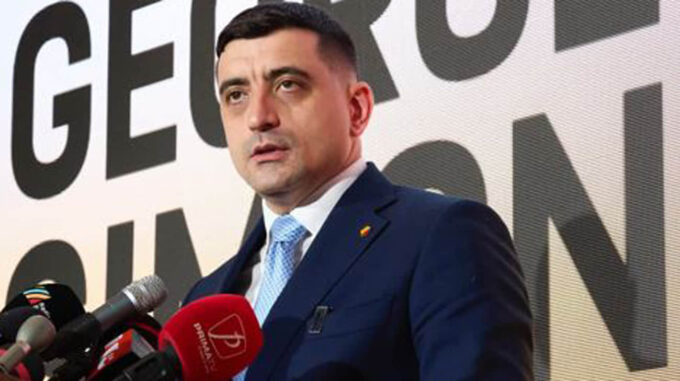Pro-Russian party leader AUR, Gheorghe Simion, officially acknowledged his defeat in the Romanian presidential elections, which became one of the most significant political events in the country in recent weeks

He made this statement in a video address on his Facebook page, where, during an emotional speech, he congratulated the newly elected president, Nicoșor Dănă, on his victory, emphasizing that the will of the Romanian people is the main arbiter in this election. In his words, Simion noted that despite the defeat, he is sincerely grateful to over five million voters who entrusted him with their votes during this tense electoral process. “I would like to sincerely congratulate my opponent, Nicoșor Dănă; he has become the winner of these elections. This is the expression of the will of the entire Romanian people. Thank you to everyone who believed in our ideas and supported us in this fight,” the politician stated. At the same time, Simion called on his supporters not to stop and to continue fighting for their beliefs, including for “justice, truth, natural family, Christian values, and freedom.” Regarding his results, he announced that he gathered a little more than 5.2 million votes, acknowledging that he feels a “bitter taste of defeat,” but does not plan to cease his political activity. As for the election results, after processing 99.82% of the polling station protocols across the country and abroad, Mineshor Dănă received 53.78% of the support, while his pro-Russian opponent garnered 46.22%. This means that more than six million Romanians cast their votes for the new president, marking a significant political victory for the pro-European candidate. A notable event was the fact that Ukrainian President Volodymyr Zelensky already congratulated Nicoșor Dănă on his historic victory, reaffirming Ukraine’s support for the newly elected leader of Romania and viewing him as a key regional partner. This highlights the importance and relevance of these elections not only for the internal political scene but also for the security and stability of the entire region. Earlier, the pro-Russian candidate Gheorghe Simion declared himself the winner of this contest and did not intend to accept defeat, which increased tension in the country’s political circles. Exit polls, based on surveys conducted on election day, predicted his loss; however, the latest data showed that the final outcome would heavily depend on the votes of the Romanian diaspora, which traditionally holds significant political influence in elections within Central and Eastern European countries. The coming weeks and months are likely to be a test for Romania’s future course—whether the country will continue along a pro-European path or revert to a pro-Russian stance. Although several candidates clearly represent different political vectors, the election results have already had a serious impact on internal politics and on the country’s relations with neighbors and international actors. Amid these events, experts and analysts are already contemplating the possible consequences for regional stability, foreign policy, and geopolitical dynamics. In any case, this stage of Romania’s political history will remain in the spotlight for a long time, not only for local media but also for a broad range of international observers eager to understand what changes lie ahead for the country.

